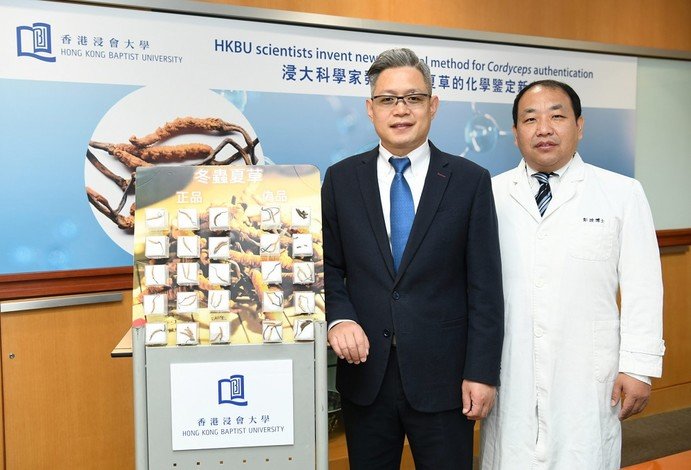Campus Digest
SCM scientists develop new method for Cordyceps sinensis authentication
17 Jan 2020


A Chinese medicine research team has identified a unique polysaccharide marker from the caterpillar part of Cordyceps sinensis, and successfully applied it to the qualitative and quantitative authentication of this Chinese herbal medicine. This novel, low-cost method can authenticate Cordyceps sinensis in an hour.
The research team led by Dr Han Quanbin, Associate Professor of the School of Chinese Medicine, conducted a study to compare the polysaccharides that exist in Cordyceps sinensis with those found in fake adulterants. A unique polysaccharide marker, which is classified as 1,4-α-glucan, was found only in the caterpillar part of Cordyceps sinensis, and not in the samples of fake adulterants.
Having identified the polysaccharide marker, the team used it to develop a novel rapid testing method based on the commonly used HPLC (High Performance Liquid Chromatography) instrument. The new method can identify the quantity of the unique polysaccharide marker in Cordyceps sinensis, which is associated with the quality grade of Cordyceps samples.
Please click here for more details.